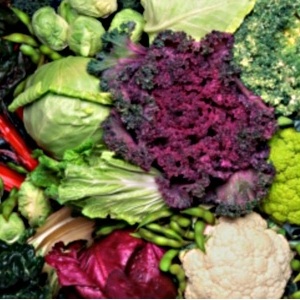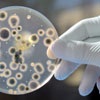
HIV-infected people are usually more vulnerable to contract food-borne illnesses because of their weakened immune systems. It is therefore important for people with HIV infection to follow basic food safety guidelines and to eat defensively.
HIV-infected individuals should eat a low microbial diet to avoid microbial infections (and food poisoning). They should always cook meat, chicken and fish very well (because heat kills bacteria), and should avoid products that contain any raw or undercooked meat or dairy products. They should for the same reason avoid raw or soft-boiled eggs because they can be sources of salmonella - as can “biltong” (dried meat) and “droë wors” (dried sausage), raw eggs and unpasteurised dairy products (milk and cheese). They should also avoid products that have passed their “sell by” or “best used by” date. “Raw” cows milk or unpasteurised milk should be boiled and then kept in clean containers.
Food should be handled and stored hygienically. Keeping shelves, counter tops, refrigerators, towels and utensils clean is one of the best ways of preventing the bacterial contamination of food. To prevent cross contamination (e.g. from raw meat to other foods), the food handler should wash his or her hands regularly and not use wooden cutting boards for cutting and chopping raw meat, fish or chicken. Uncooked food should be kept separate from cooked food. Food that is mouldy or about to go off should be avoided, and all previously cooked food should be re-heated at a high temperature for some time before it is eaten (the heating process serves in many cases to kill or neutralise dangerous organisms).
Raw seafood (shellfish, oysters, clams, sushi and sashimi) poses a serious risk of food poisoning for people with Aids and should never be eaten. Lightly steamed seafood should also be avoided.
Fruits and vegetables should always (if possible) be washed, scrubbed with a stiff brush, or peeled. Avoid fruit and vegetables that have been sprayed with pesticides. Canned fruits and vegetables could be used instead of fresh products if fresh products are contaminated. Raw alfalfa sprouts have been identified as carriers of food-borne diseases in the USA, and it is recommended that people with compromised immune systems should avoid eating raw sprouts.
Water should be boiled if there is the slightest suspicion that the water source may be contaminated.
One should eat foods with high-kilojoule, high-protein content and avoid low-kilojoule or zero-kilojoule foods. Instruct people about ways in which they can supplement the nutritional value of their meals. The addition of eggs, butter, margarine and milk to gravies, soups or milkshakes can provide additional kilojoules and protein.
Avoid too many processed foods because many of their nutrients have been destroyed during preparation. Avoid foods that contain preservatives, artificial flavours and artificial colours. Avoid “junk foods” as far as possible.
Avoid raw (unpasteurised or unboiled) cow’s milk.




 Publications
Publications
 Partners
Partners










